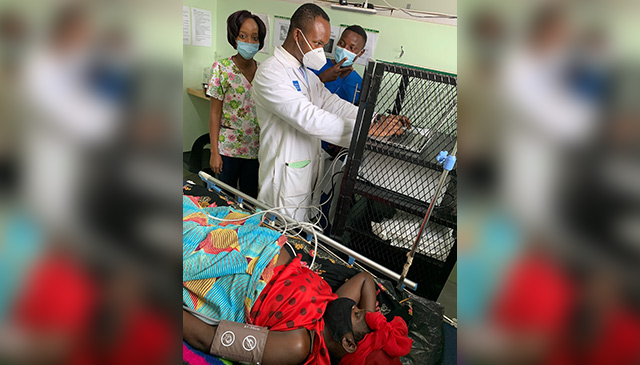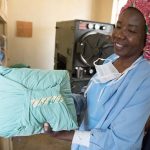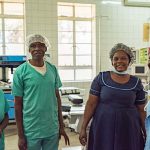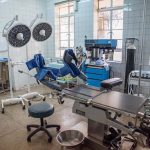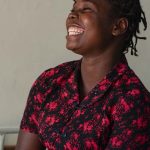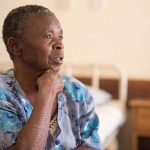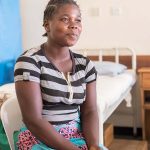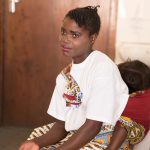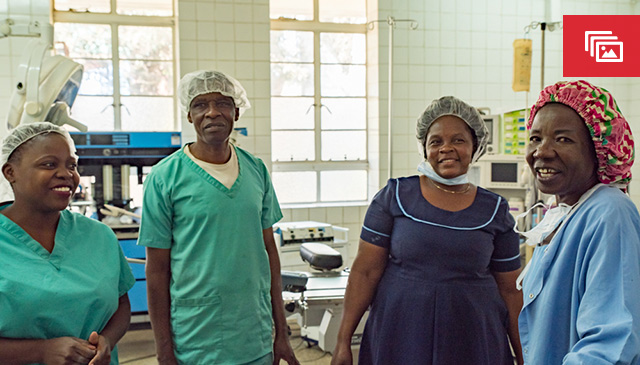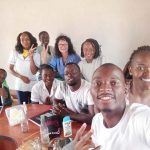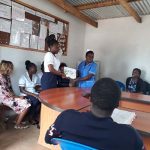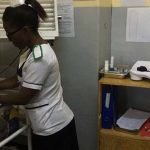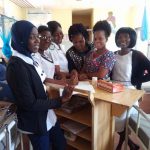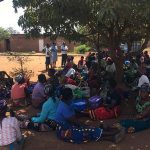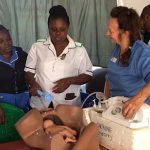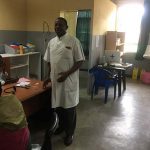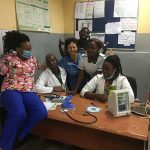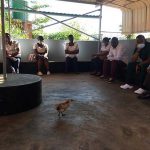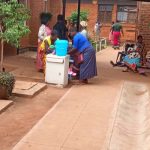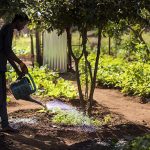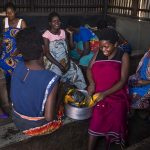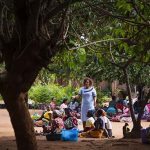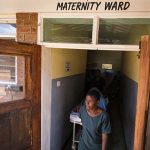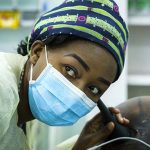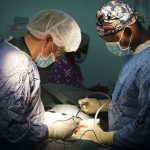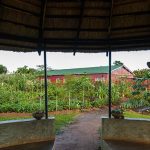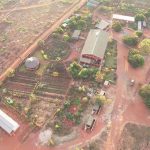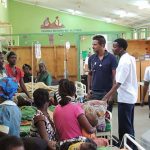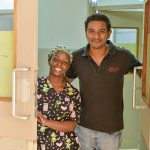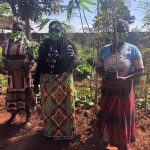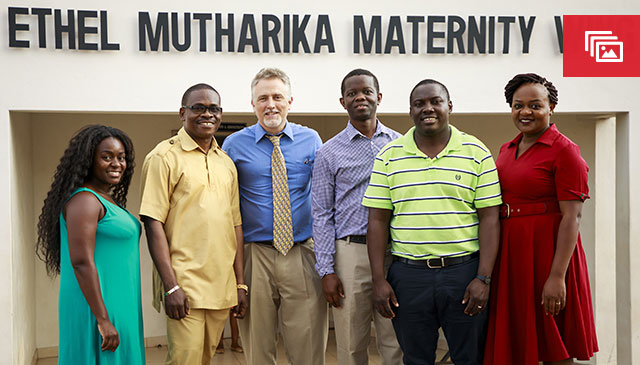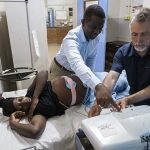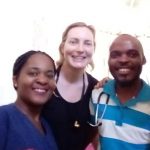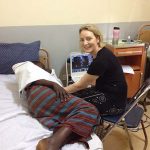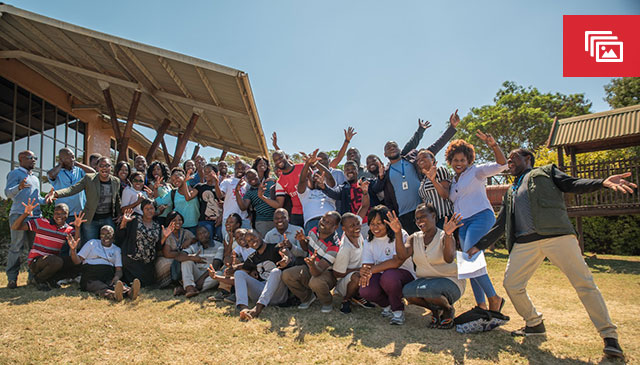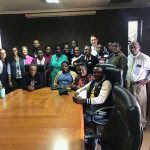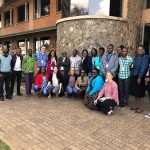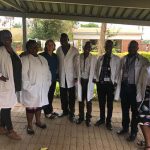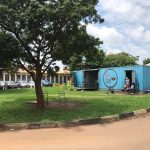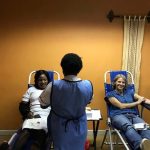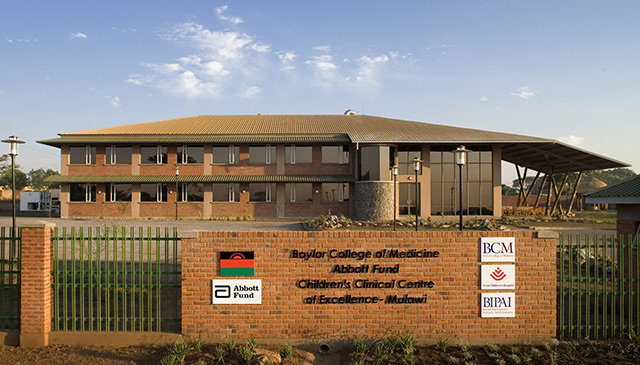December 14, 2020
The story you are about to read is part of an ongoing series about Texas Children’s efforts to care for women and children around the globe. The series highlights Texas Children’s efforts in Malawi, one of the 17 countries we currently serve. Today’s story focuses on the care of expectant mothers in Malawi via a unique private-partnership between Texas Children’s, Baylor College of Medicine Children’s Foundation-Malawi and the Ministry of Health of Malawi.
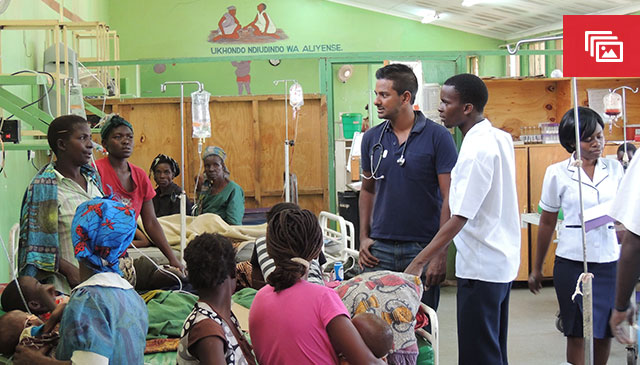
Eneless Janlathanle lives about 12 miles from the nearest hospital in Lilongwe, Malawi. That might not seem far, but it is quite a way when you don’t have reliable transportation. This barrier to health care is what led Eneless to deliver her second child at home, an experience she said she does not want to repeat if she had another child.
“My delivery at home was hard,” Eneless said. “I knew I couldn’t do that again.”
Due to the growth and success of the Area 25 Health Center – a unique public/private-partnership between Texas Children’s, Baylor College of Medicine Children’s Foundation-Malawi and the Ministry of Health of Malawi – Eneless didn’t have to deliver her third child at home. Instead, she spent two-plus weeks at the center’s maternal waiting home and gave birth to her child in the nearby labor and delivery ward.
During her stay, Eneless ate food from the center’s permaculture garden and learned how to grow and cook similar food when she returned to her village. The 24 year old also took perinatal classes to better learn how to take care of herself and her baby. The experience, Eneless said, was wonderful.
“I was comfortable and well taken care of,” she said. “I also gained a lot of knowledge that I could take back home.”
A paradigm shift
Women like Eneless and their children are disproportionately affected by lack of access to health care services, particularly in resource limited settings. Malawian women have some of the worst odds with 675 deaths per 100,000 live births – among the highest maternal mortality ratios in the world. By contrast, the ratio for US women is 14 deaths per 100,000 live births.
To improve these odds, the Global Women’s Health program has invested a lot of time and effort into expanding the quality and quantity of services offered at Area 25 Health Center, significantly alleviating the burden of increasing demand for maternal and neonatal services at Kamuzu Central Hospital (Lilongwe’s referral hospital) and Bwaila Maternity Hospital, the largest maternity unit in the region with 17,500 plus deliveries per year.
With the help of generous donors, a maternal waiting home, a four-room operating theater and most recently a new maternity ward have been built to help clinicians, midwives and non-medical staff better serve the women and children of Malawi.
“When we first became involved, there were about 1,800 deliveries a year at Area 25,” said Dr. Jeffrey Wilkinson, vice chair of Global Health and professor, OB-GYN and director of the Global Women’s Health Program, public-private partnership that has invested a lot of time and effort into expanding the quality and quantity of services offered at Area 25 Health Center. “Now there are more than 6,500, the same amount of babies born per year at the Pavilion for Women.”
The bulk of that growth began a little more than a year ago when a four-room operating theater opened at Area 25, providing a safe haven to pregnant women and newborns in need of surgical care. Prior to the opening of this theater, women who needed a cesarean delivery and babies with even minor neonatal issues were referred to Kamuzu Central Hospital or Bwaila Maternity Hospital. The theater at Area 25 has helped alleviate the pressure on those hospitals and has given women and babies another chance to receive the care they need.
Dr. Ibe Iwuh, one of the OB-GYNs at the health center, said when coordinated efforts began, more than 20 percent of their patients who needed surgical intervention were referred to a hospital with an operating theater and that about half the time, their babies didn’t survive because the referral either happened too late or there was another delay in intervention.
“Since we started operating here, we have seen significant reduction in those numbers and the overburdening that happens at the referral unit,” Iwuh said. “So, it’s no question the theater has supported and greatly improved the quality of health care we provide.”
A safe haven
The maternal waiting home has made a significant impact on patient outcomes as well. Built in 2013 with the help of a Bill and Melinda Gates Foundation grant, the red building with green trim can house almost 40 women who are in the latter stages of pregnancy and either need or want to be close to a medical community prior to going into labor to avoid a secondary delay in accessing maternal care.
During their time at the home, women learn how to take care of their babies and themselves after pregnancy. They learn about family planning, nutrition and hygiene. They also are taught income generating skills such as sewing, knitting and gardening.
The women are encouraged to take the knowledge and skills back to their communities where they can share it with community members. These programs are unique to Area 25 Health Center and are focused on sustaining a woman and baby’s health beyond the health care setting.
“It’s not easy to take care of a baby, especially in our setup where resources are so limited,” said Ruth Moyo, manager of the waiting home. “Teaching them how to take care of their baby, the importance of vaccines and family planning, and the dangers of pregnancy, is like preventing maternal and neonatal death. It’s also empowering them to be more self-sufficient when they leave and go back home.”
Surrounding the maternity waiting home, is a diverse and vibrant permaculture garden packed with healthy fruits, vegetables and herbs. Cultivated and designed by Afshan Omar and her team, the garden has grown steadily in the two years it has served the community. What started out as a few small beds is now a lush mandala-shaped ever-expanding edible landscape filled with food that women at Area 25 Health Center can learn to cook, eat, grow and cultivate on their properties.
“Permaculture is a design system using sustainable agricultural methods that mimic patterns of natural ecosystems,” said Omar, a native Malawian who oversees the permaculture and environmental program at Area 25 Health Center. “In a country where the majority of people are small scale farmers with a limited range of healthy and diverse crops, the garden provides a unique opportunity to teach healthy crop cultivation, while inspiring an improved quality of a life for the patients to take home.”
Every woman who leaves the center is given two seedlings, a fruit tree seedling and a bamboo seedling. During their stay at the maternal waiting home, they learn how to care for those seedlings and understand their importance in nature, while also growing and cooking the food they are fed from the permaculture garden. Taking this knowledge back home, gives the women at the waiting home a sense of achievement in learning the ability to create a productive and aesthetically green space within their homesteads.
Broadening their nutrition is important. Many women at the maternity home are used to eating a local dish called nsima, which is a blend of maize and water with beans or a type of tomato and onion relish. They are not used to eating different types of vegetables that are more nutritious for their bodies and the bodies of their children.
“Historically in Malawi, people ate a lot of sorghum, millet, cassava and sweet potato, but you don’t find that to be a normal part of the diet anymore,” Omar said. “We are trying to gradually reintroduce these things back into these women’s diets through gardening and cooking classes.”
Omar’s efforts are paying off. Throughout the week, women at the waiting home would walk into the outdoor kitchen and ask Omar how to cook a dish that was served the day before or they ask her how to cook something they’ve found interesting in the garden. More importantly, they clean their plates. They eat the colorful concoctions Omar has created and infused with her passion of connecting people and nature.
“It’s been very positive,” Omar said. “The partnership between Texas Children’s, Baylor and the Ministry of Health is a beautiful synergy that’s allowing an innovative model of care to prosper and grow.”
Model of care
The latest outcome of that partnership is a new nine-bay labor and delivery ward adjacent to the maternity home. The unit opened in May and is providing women a private place to give birth, and clinical workers more space to deliver the same amount of babies per year born at the Pavilion for Women.
Each room in the new labor and delivery ward is equipped with a swinging door that leads out to a nurses’ station. One of the nine rooms has a private bath and shower. The other eight rooms share four private baths and showers, each with a sliding door for easy access.
Prior to opening the new ward, women at Area 25 were delivering their babies in a six-bed labor and delivery ward on beds lined up in one room separated by curtains. Because of the cramped quarters, family members were not able to accompany or help their loves ones during delivery. The new ward has enough space for one family member to be in the room during delivery, an accommodation that is somewhat unique in health care facilities across Malawi and sub-Saharan Africa.
“This has been a transformational gift for the women and babies in this region,” Iwuh said. “It’s helped us not only provide high quality care, respectful care to women but also to demonstrate the potential between a public-private partnership between a US academic institution, a US health care organization, and the Malawi Ministry of Health.”
Dr. Chikondi Chiweza, one of the OB-GYNs at Area 25, said it’s very satisfying to see Area 25 become one of the busiest maternity wards in the area.
“Because of the waiting home, women who might have gone into labor far from a medical institution now have a safe place to wait during their last few weeks and days of pregnancy,” Chiweza said. “The operating theater has enabled us to take care of more complex patients, and the new maternity and labor ward will allow us to better meet the ever-growing demand of births and well-woman services.”
Wilkinson said he believes what’s being done at Area 25 Health Center is a model of care that is sustainable and will be employed in other area of the country. He said it falls right in line with Baylor and Texas Children’s goal of providing the highest quality of care to the women and children we treat through our Global Women’s Health program and its many partners.
“Texas Children’s Hospital and Baylor College of Medicine are working together to respond to the needs of underserved communities throughout the world through a network of health care professionals dedicated to providing the best clinical care and treatment available, building health care capacity through education, and advancing clinical discovery with cutting-edge research programs,” he said. “Texas Children’s Global Women’s Health is proud to partner with the Malawi Ministry of Health, University of Malawi College of Medicine, and many local and international partners. Our work is made possible by the generous support of donors hoping to make a change in the lives of women and children in resource limited settings.”
For more information about Area 25 Health Center, click here. To make a donation to Texas Children’s global health efforts, click here.
